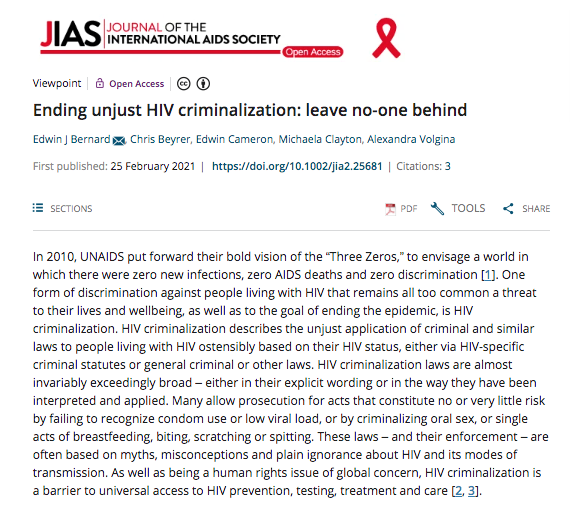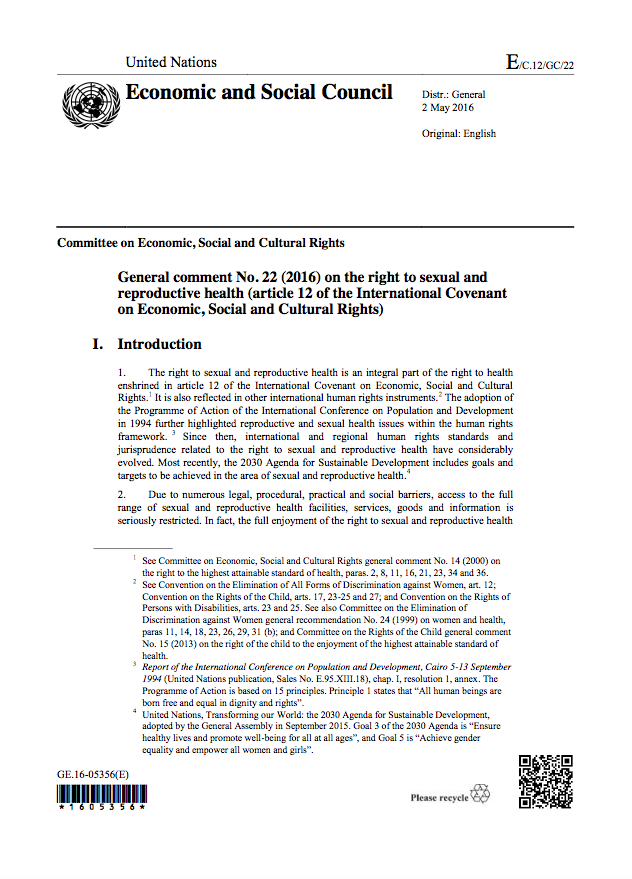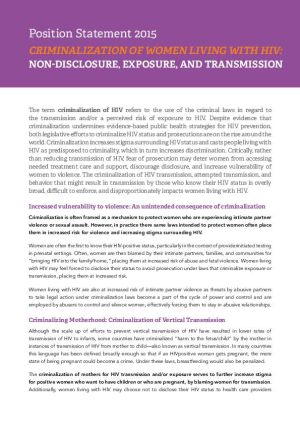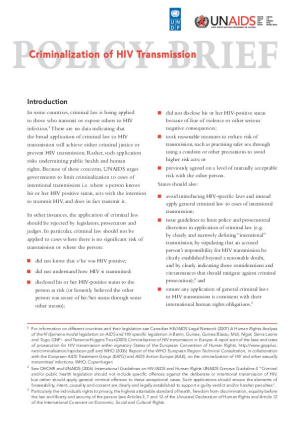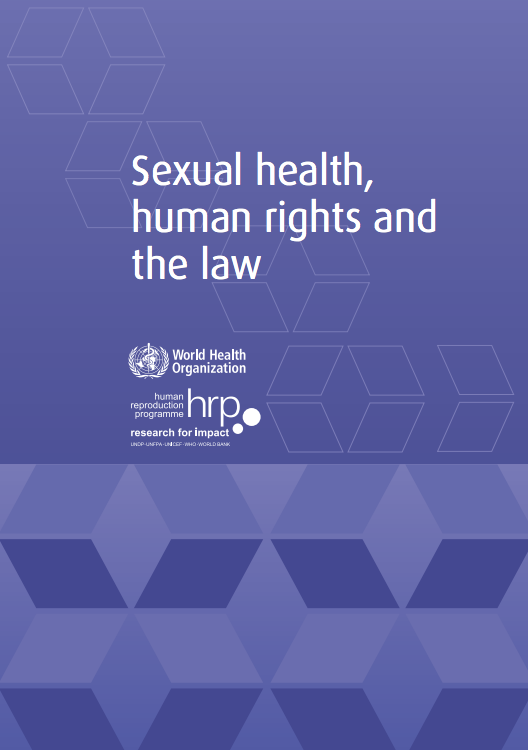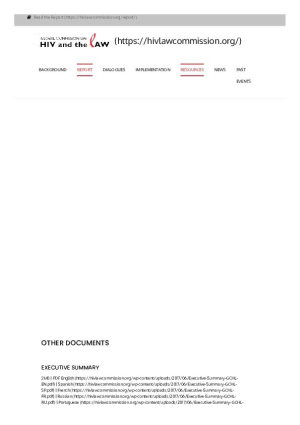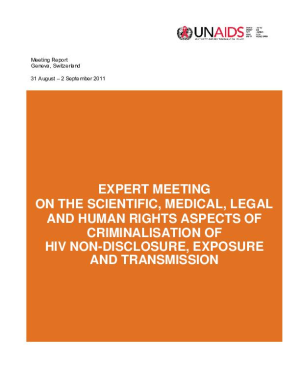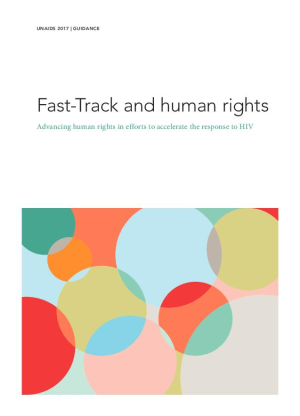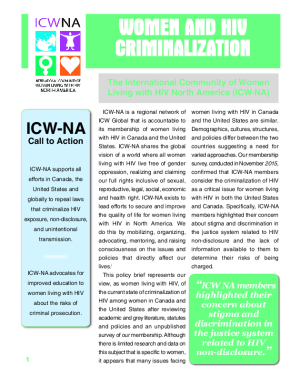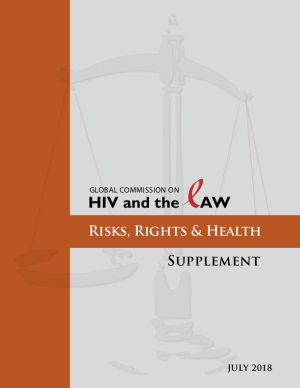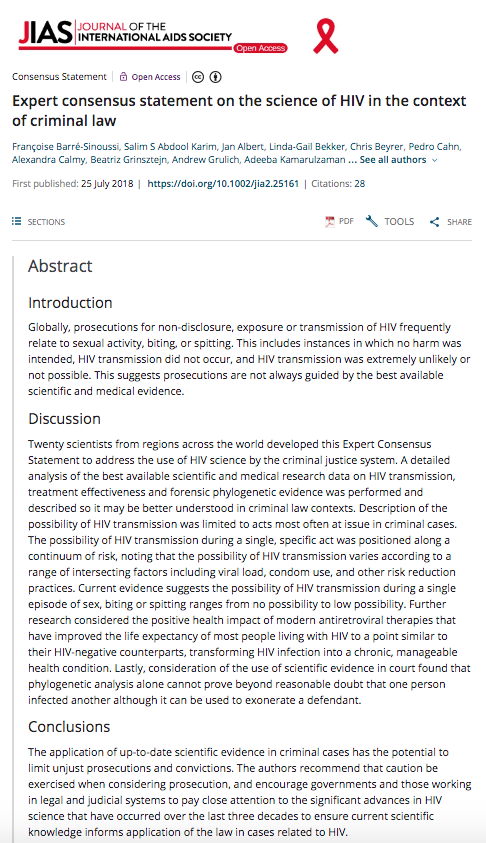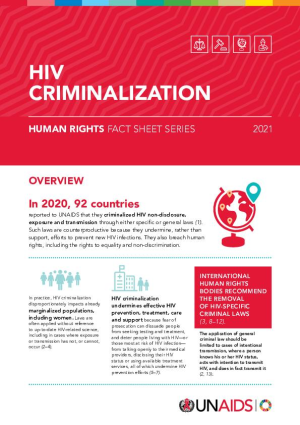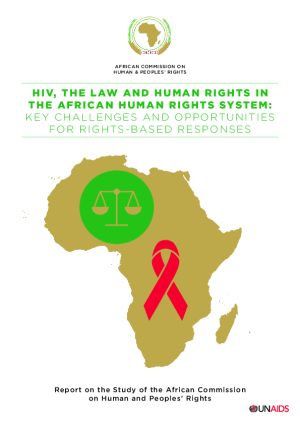This article discusses the issue of HIV criminalization, highlighting that such laws are often based on myths, misconceptions, and ignorance about HIV transmission and can lead to discrimination and stigma against people living with HIV. The article emphasizes that HIV criminalization poses a significant barrier to achieving universal access to HIV prevention, testing, treatment, and care. The authors conclude by calling for the removal of HIV criminalization laws entirely to ensure justice for all individuals living with HIV and to end the discrimination and stigma associated with these laws.
What the experts say
International Organisations
For more than a decade, UN and other international agencies have recognised HIV criminalisation as a global concern, calling for review of legal frameworks and the use of laws to target HIV.
Decriminalisation and the end of AIDS: keep the promise, follow the science, and fulfill human rights
A statement from the UNAIDS Reference Group on HIV and Human Rights stating that criminal laws violate a variety of human rights, including the rights to the highest attainable standard of physical and mental health, non-discrimination, privacy, autonomy, dignity, freedom of expression, freedom from arbitrary detention, and ultimately the right to life, among others and calls for States to take proactive measures to end such practices and abolish the underlying criminalisation.
Ending overly broad criminalisation of HIV non-disclosure, exposure and transmission: Critical scientific, medical and legal considerations
Restates UNAIDS’ position on criminalisation and makes specific recommendations to help governments, policy-makers, law enforcement officials, and civil society limit the overly broad application of criminal law to HIV.
- Alternative links
- Spanish / Español
General Comment No. 22 (2016) on the Right to sexual and reproductive health (article 12 of the International Covenant on Economic, Social and Cultural Rights).
Includes comment (at page 40) that States must reform laws that impede the exercise of the right to sexual and reproductive health. Examples include laws criminalizing non-disclosure of HIV status, and exposure to and transmission of HIV.
- Alternative links
- Spanish / Español, Russian / Русский
Report of the Special Rapporteur on the right of everyone to the enjoyment of the highest attainable standard of physical and mental health
Commentary includes clear statements outlining many ways that criminalisation undermines effective HIV response.
Oslo Declaration on HIV Criminalisation
Outlines the importance of a cohesive, evidence-informed approach to use of criminal law relating to HIV non-disclosure, exposure and transmission. Urges Ministries of Health and Justice, public health officials, policymakers and criminal justice system actors to ensure a proportionate response to HIV transmission risk.
International Community of Women Living with HIV (ICW) Position Statement on Criminalization of Women Living with HIV
Argues that criminalisation of women living with HIV for non-disclosure, exposure or transmission undermines public health strategies and increases risk of violence against women. Includes recommendations.
Criminalization of HIV transmission Policy Brief
Urges governments to limit criminalisation of HIV to cases of intentional transmission. Argues that criminal law should not be applied in a range of circumstances, including where there is no significant risk of transmission.
- Alternative links
- French/Français, Spanish/Español, Russian/Русский
Sexual health, human rights and the law
Considers States’ obligations to bring laws and regulations affecting sexual health into alignment with human rights laws and standards. Includes recommendations on HIV criminalisation.
HIV and the Law: Risks, Rights and Health
Presents coherent and compelling evidence base on human rights and legal issues relating to HIV, including commentary and recommendations. Chapter 2 (pages 21-25) covers HIV criminalisation.
Expert meeting on the scientific, medical, legal and human rights aspects of criminalisation of HIV non-disclosure, exposure and transmission
This report contains the views, opinions and suggestions for policy orientation and formulation of the participants at an expert meeting (convened on 31 August–2 September 2011 in Geneva, Switzerland) that brought together scientists, medical practitioners and legal experts in order (i) to consider the latest scientific and medical facts about HIV that should be taken into account in the context of criminalisation, and (ii) to explore how to best address issues of harm, risk, intent and proof—including alternative responses to criminalisation—in light of this science and medicine.
Fast Track and Human Rights – Advancing human rights in efforts to accelerate the response to HIV
Spells out for the first time (on p23) that there must be “Non-criminalization of mother-to-child transmission” when a country applies for validation for the elimination of mother-to-child transmission of HIV. This marks the first time in public health history that human rights guarantees are considered a prerequisite to validating disease elimination.
Women and HIV criminalization
This policy brief represents the view, as women living with HIV, of the current state of criminalization of HIV among women in Canada and the United States after reviewing academic and grey literature, statutes and policies and an unpublished survey of membership. ICW-NA members highlighted their concern about stigma and discrimination in the justice system related to HIV non-disclosure.
Risks, Rights & Health – Supplement
This Supplement highlights developments since 2012 in science, technology, law, geopolitics, and funding that affect people living with or at risk from HIV and its coinfections. The recommendations add to and amplify those of the Commission’s 2012 report Risks, Rights & Health, which remain as relevant as they were six years ago.
Expert consensus statement on the science of HIV in the context of criminal law
Twenty scientists from regions across the world developed this Expert Consensus Statement to address the use of HIV science by the criminal justice system. Description of the possibility of HIV transmission was limited to acts most often at issue in criminal cases. The authors recommend that caution be exercised when considering prosecution, and encourage governments and those working in legal and judicial systems to pay close attention to the significant advances in HIV science that have occurred over the last three decades to ensure current scientific knowledge informs application of the law in cases related to HIV.
- Alternative links
- Czech: Expertní prohlášení k vědeckým poznatkům o HIV v kontextu trestního práva , French: Déclaration de consensus d'experts sur la connaissance scientifique relative au VIH dans le contexte du droit pénal, German: Expertenkonsens zur HIV-Wissenschaft im Kontext des Strafrechts, Mandarin: 專家共識聲明:刑法脈絡下的愛滋相關科學, Russian: Заявление об экспертном консенсусе в отношении научных данных о ВИЧ- инфекции в контексте уголовного права , Spanish: Declaración de Consenso de expertos sobre la ciencia relativa al VIH en el contexto del derecho penal
HIV Criminalization – Human Rights Fact sheet Series
Series of fact sheets on human rights highlighting the critical need to scale up action on rights. Short, easy to digest and accessible document outlining the latest epidemiology, the evidence of the impact of human rights interventions, the latest targets, and international guidelines, recommendations and human rights obligations.
Other factsheets in the same series released in June 2021 include: HIV and people who use drugs, HIV and gay men and who have sex with other men, HIV and transgender and other gender-diverse people, HIV and sex work, HIV and people in prisons and other closed settings and HIV and stigma and discrimination.
HIV, the Law and Human Rights in the African Human Rights System: Key Challenges and Opportunities for Rights-Based Responses
Report on the Study of the African Commission on Human and Peoples’ Rights. The report presents the current state of the HIV epidemic in Africa through a human rights and gender lens by showing the populations and locations most affected by HIV and those underserved by the response to the epidemic. It also describes the global, regional and national norms and standards relating to HIV and health, as well as their interpretation and application by African regional mechanisms, United Nations (UN) bodies and national courts and institutions. It further provides a detailed analysis of the key human rights challenges affecting the response to HIV on the continent.
- Alternative links
- Français

